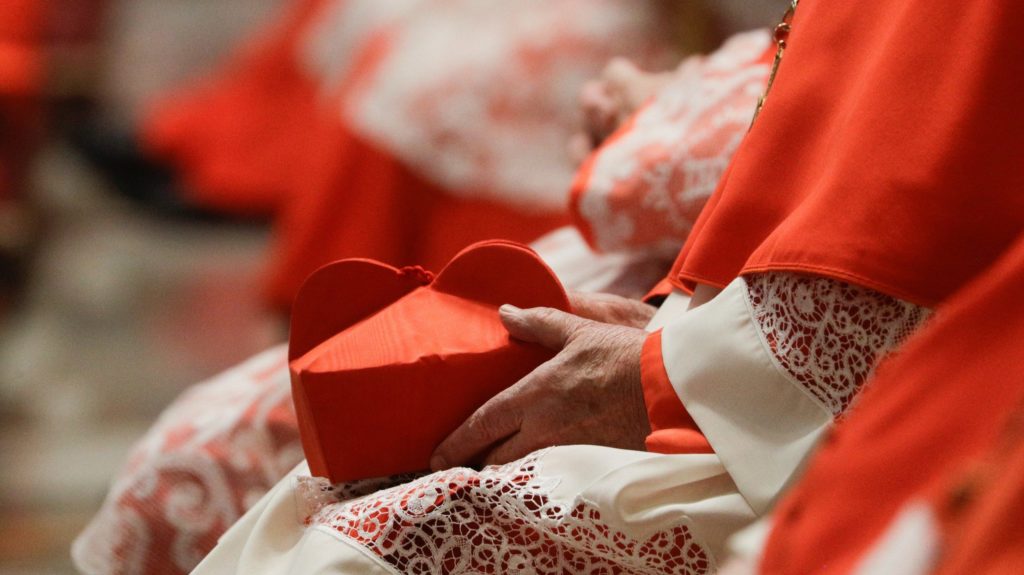ROME — Though it’s admittedly a somewhat flippant comparison, there’s a sense in which every consistory, an event in which a pope creates new cardinals, is a bit like the Iowa caucuses in American politics — that is, it’s a chance for new contenders for the system’s top job to introduce themselves.
Formally, cardinals serve as the most senior advisers to the pope who created them, and, of course, one day they’ll choose his successor.
Yet in addition, they also represent the field of potential contenders to become that successor. Every time a consistory occurs, therefore, the lineup is scrutinized for indications not only of what the cardinals may be looking for, but who their candidates might be.
Naturally, identifying “papabili,” meaning candidates to become the next pope, is an inexact science. Nobody creates exploratory committees, or makes splashy campaign announcements — even ones made exclusively on Twitter, which turn into metaphors for stumbling out of the gate.
Indeed, if you were to ask the vast majority of prelates who eventually became pope before their election if they considered themselves candidates, they’d deny it until they were blue in the face — and some of them would even have meant it.
Into this vacuum, therefore, steps an amorphous class of humanity popularly known as “Vatican-watchers,” which often functionally means people who will say out loud what others are thinking and speaking only “sotto voce” (“soft tones”).
So, what do we Vatican-watchers make of the crop of 21 new cardinals announced by Pope Francis, including 18 under the age of 80 who will help elect the next pope?
Three key observations suggest themselves.
First, it’s tempting to believe that because with this group Francis will have named almost three-quarters of the cardinals who will elect his successor, he’s therefore increased the odds that the next pope will be like him.
As Lee Corso would say during an ESPN “College GameDay” broadcast, however, “Not so fast!”
In truth, because of Francis’ predilection for naming cardinals from the peripheries, a striking share of the electorate in the next conclave will be composed of prelates with extremely low profiles, whose outlook and desires for the next pope are almost impossible to handicap.
Recently Crux had the chance to speak informally to one of Francis’ periphery cardinals, created during an earlier consistory, who happened to be in Rome on a bit of business. When the subject arose of controversies surrounding Cardinal-designate Victor Manuel Fernández, the pope’s top theological adviser, it was clear this cardinal was bewildered and a bit troubled by what it all might mean.
While that’s hardly conclusive, it does suggest that any forecasts about the outcome of an election in which a large share of the voters are essentially unknowns, amount to exercises in guesswork. It’s probably also worth recalling that in 2013, a body of cardinals entirely composed of John Paul II and Benedict XVI appointees nevertheless elected Francis.

Second, this consistory is unusually chock full of possible “papabili.” By my count, there are at least four. Here they are, along with a one-sentence version of the argument in their favor.
- Fernandez: Like Cardinal Joseph Ratzinger was to John Paul II, Fernandez would be the logical heir to Francis’ doctrinal legacy.
- Italian Archbishop Claudio Gugerotti: The next pope will inherit a geopolitical scenario dominated by the aftermath of the Russian war in Ukraine, and few figures among the current crop of cardinals know the Russian sphere and the Orthodox churches better.
- French Archbishop Christophe Pierre: The current papal ambassador to the U.S., Pierre would be the substance of the Francis papacy but with a much greater degree of diplomatic caution in terms of what he says out loud.
- Italian Archbishop Pierbattista Pizzaballa: Having navigated the Israeli/Palestinian conflict artfully as the patriarch of Jerusalem, healing the tensions of a divided Catholic Church might be a walk in the park.
Third, there’s a fascinating pick among the so-called “honorary” cardinals, meaning those over the age of 80 and therefore ineligible to take part in the next conclave: Italian Archbishop Agostino Marchetto, a former secretary of the erstwhile Pontifical Council for Migrants and Refugees, but better known for his historical studies of the Second Vatican Council.
What makes the selection truly remarkable is that Marchetto is known for advocating an hermeneutic of continuity vis-à-vis Vatican II, meaning that the council did not mark a rupture with the Church before the mid-1960s. In a word, he’s seen as a more “conservative” historian, often crossing intellectual swords with the “School of Bologna” in Italy and its progressive reading of the council, which Francis has ratified by elevating a series of churchmen associated with that outlook, including the current archbishop of Bologna, Cardinal Matteo Zuppi.
So what does it mean that Francis has offered a sort of papal seal of approval to Marchetto?
It should be said that Marchetto’s Vatican service was devoted to migrants and refugees, a special concern for Francis. But more broadly, it’s probably fair to say that for a pope whose new buzzword is “synodality,” broadly meaning dialogue and consultation, it’s not a bad thing to be seen as open to a churchman associated with different views.
Of course, it’s also fair to point out that Francis waited until Marchetto was over 80, and therefore safely out of the way in terms of participating in the next papal election, before bestowing the honor.
In other words, this is balance after a fashion … inclusion, but not influence.
No matter how you slice it, this is a compelling and deeply consequential consistory. And the thing is, it’s really no more than a warmup act for the drama to follow the next day, when the curtain rises on the first of Francis’ two Synods of Bishops on Synodality.
Say what you will about the Francis papacy, but we all should be able to agree on this: It’s never, not for a single moment, ever been dull.

